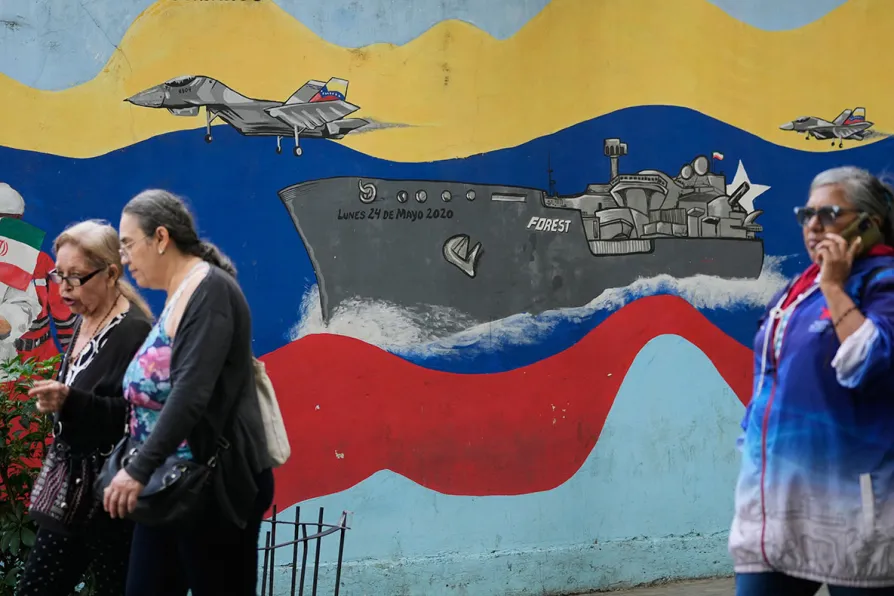
 Pedestrians walk past a mural featuring a Venezuelan warship and aircraft in downtown Caracas, Venezuela, November 11, 2025
Pedestrians walk past a mural featuring a Venezuelan warship and aircraft in downtown Caracas, Venezuela, November 11, 2025
COLOMBIAN President Gustavo Petro ordered his nation’s security forces to stop sharing intelligence with the United States until the Trump administration stops its unprovoked strikes on alleged drug-traffickers in the Caribbean.
In a social media message on Tuesday, Mr Petro said that Colombia’s military must immediately end “communications and other agreements with US security agencies” until the it ceases its attacks on speedboats suspected of carrying drugs, that critics have likened to extrajudicial executions.
Mr Petro wrote that “the fight against drugs must be subordinated to the human rights of the Caribbean people.”
It wasn’t immediately clear what kind of information Colombia will stop sharing with the United States.
At least 75 people have been killed by the US military in strikes in international waters since August, according to figures supplied by the Trump administration.
The strikes began in the southern Caribbean, near Venezuela’s shores, but have shifted recently to the eastern Pacific, where the US has targeted boats off Mexico.
Mr Petro has called for US President Donald Trump to be investigated for war crimes over the strikes, which have affected citizens of Venezuela, Ecuador, Colombia and Trinidad and Tobago.
The leftist leader has long been a critic of US drug policy, and has accused the Trump administration of going after peasants growing coca, the base ingredient of cocaine, instead of targeting major drug-traffickers and money-launderers.
On Sunday, Petro said that he had met with the family of a Colombian fisherman who was allegedly killed in one of the strikes.
“He may have been carrying fish, or he may have been carrying cocaine, but he had not been sentenced to death,” Mr Petro said during a summit between Latin American and European Union leaders hosted by Colombia on Sunday. “There was no need to murder him.”
UN experts warned earlier this month that the US’s unprovoked strikes in the Caribbean “appear to be unlawful killings carried out by order of a government, without judicial or legal process allowing due process of law.”
The US has deployed eight warships, a submarine, fighter jets and marines deployed to the region. An aircraft carrier, the USS Gerald Ford, is also expected to arrive in the Caribbean this month.
Venezuela’s government has described the naval build-up as a threat to its sovereignty, with officials there saying that the US military is preparing to launch strikes against the government of Nicolas Maduro.
The Trump administration has said that its deployment is aimed at curbing drug-traffickers, though Mr Trump has also hinted there could be strikes on target within Venezuela, whose leader has Washington claims is the head of a drug cartel.
Venezuelan Defence Minister Vladimir Padrino Lopez announced on Tuesday that military personnel, members of a civilian militia, police officers and ruling-party organisers would be mobilised for a training exercise to protect the country’s air space.










